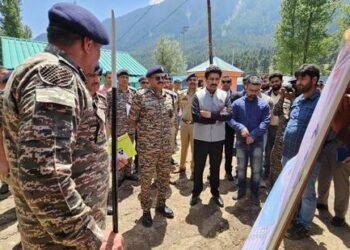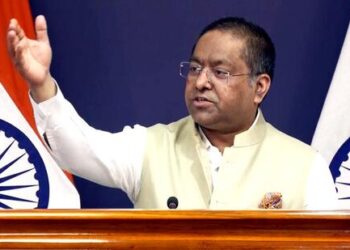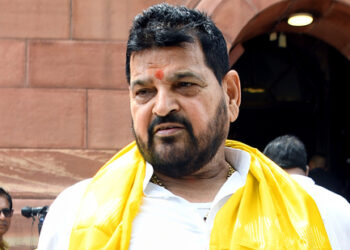Bihar’s political landscape takes a contentious turn as four government school teachers find themselves at the center of a storm following the circulation of a photograph showing them alongside a candidate from the Rashtriya Janata Dal (RJD). The image, which quickly went viral on social media platforms, has resulted in the lodging of a First Information Report (FIR) against the educators, igniting discussions on the neutrality of public servants and their involvement in political activities.
The FIR, registered against the teachers, alleges a violation of the code of conduct for government employees, particularly in regard to maintaining political impartiality. With Bihar gearing up for crucial elections, the incident has raised concerns about the influence of political affiliations within public institutions, particularly the education sector.
The viral photograph captures the four teachers standing alongside a prominent RJD candidate, whose identity remains undisclosed. The perceived alignment with a political figure has sparked controversy, with many questioning the appropriateness of educators engaging in partisan activities, given their role in shaping the minds of young students in government schools.
Authorities have responded swiftly, underscoring the importance of maintaining political neutrality among public servants, especially during electoral periods. The filing of the FIR sends a clear message about the seriousness with which such matters are being addressed, emphasizing the need to uphold the integrity of educational institutions and the democratic process.
As news of the FIR spreads on social media, it has elicited a range of reactions from the public. While some criticize the alleged political bias of the teachers, others defend their right to personal political beliefs. The incident has reignited debates about the boundaries between personal convictions and professional responsibilities, particularly within the realm of public service.
With Bihar’s political landscape becoming increasingly heated in the run-up to elections, instances of perceived bias among government employees are under heightened scrutiny. The FIR against the four teachers underscores the authorities’ commitment to ensuring fairness and impartiality in the electoral process, while also highlighting the complexities surrounding the intersection of personal and professional spheres in public service roles.
As investigations into the matter proceed, stakeholders are closely monitoring developments, hoping for a resolution that upholds both individual freedoms and institutional integrity. In the broader context of democratic principles, the controversy surrounding the teachers’ alleged political affiliations serves as a reminder of the importance of maintaining transparency and fairness in public service, particularly during times of electoral significance.








 India
India












